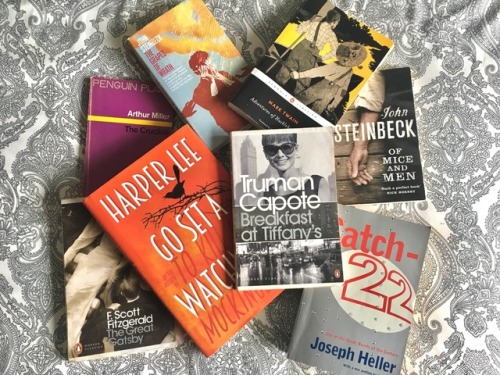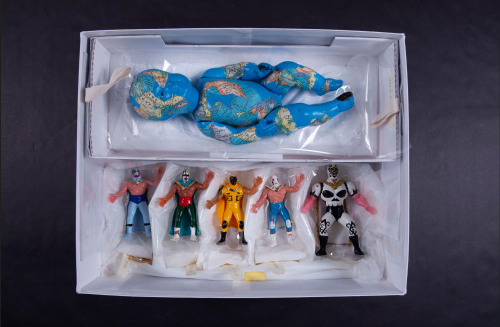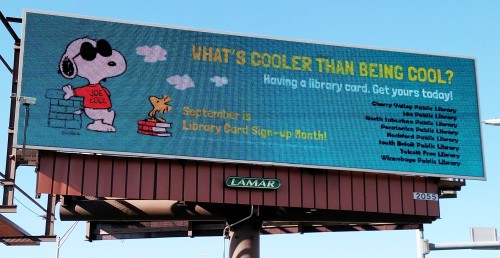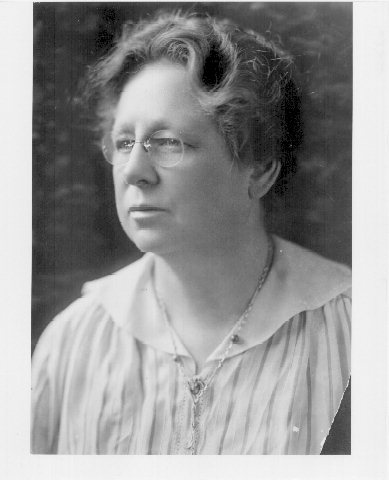#american library association
Happy 4th of July to all my American followers! Hope you have a fab day/night of celebrating Independence Day! In homage, here’s a few American Literature classics to brighten your day! ✨
Post link


The prettiest purse from Well Read Company - and one of my favourite titles too! Absolutely in love with this little gem

Ascension Community High School librarian Suanne Gordon reshelves books after a school renovation, a project of the U.S. military and Guyana Defense Force. 9/5/1997, NARA ID 6504646.
NationalSchoolLibrarian Day!
By Miriam Kleiman, Public Affairs
Today we honor the hard-working school librarians who patiently helped us find three sources for every paper, guided our debate team research, and brainstormed creative approaches to National History Day topics. Special shout out to Larry Rakow of Shaker High, circa 1980s!

Librarian at the card files at a high school in New Ulm MN, 10/1974. NARA ID 558218.

“Librarian,” from Labor Dept’s “Stock Photos Depicting Various Occupations, 2002 - 2007, NARA ID 81235343.

Librarian in the National Archives Library 1955. NARA ID 122213574.

"The Librarian Carefully Enters the Consignment Into Her Books” 12/1952. NARA ID 23932351

Librarian at Camp Lee, VA, WWI, NARA ID 20801744.

WPA-staffed library in Charlestown, IN. 8/26/1941. NARA ID 518271.
See also:
Books, Boots & Bridles: The Packhorse Librarians

Pack Horse Librarian Delivering Books to Children, 1/11/1938, NARA ID 148728416.
During the Depression, this Works Progress Administration/New Deal program brought books to eager readers in the far corners of Appalachia. FDR Library Education Specialist Jeffrey Urbin shares the story of FDR’s Pack Horse Library initiative carried out almost entirely by women. Watch the video.

Pack Horse Librarians, WPA records, 1/11/1938, FDR Library, NARA ID 48728414.
Join NYU Libraries for Preservation Week 2021!
The following events are presented as part of NYU Libraries’ Preservation Week series of programming. Preservation Week is an annual initiative of the American Library Association aimed at connecting our communities through events, activities, and resources that highlight what we can do, individually and together, to preserve our personal and shared collections.
Please note that all participants must RSVP for each event; Zoom links will be distributed following registration confirmation.
Investigating Plastics in The Special Collections
Mon, April 26, 2021, 12:00 PM – 12:30 PM EDT
Link to RSVP here
In 2020, the Preservation Department was awarded a Kress Conservation Fellowship to support research into plastic objects in our Special Collections. We hired objects conservator Chantal Stein to identify the composition of plastic items in the David Wojnarowicz Collection (MSS 092) and to establish best practices for housing and monitoring various plastic types. Our goal was to find a means to preserve these fragile items while supporting access and use. Chantal will present the results of her research.
Event Speakers:
- Chantal Stein
- Jessica Pace
Chantal Stein is the Samuel H. Kress Conservation Fellow in plastics conservation at the Barbara Goldsmith Preservation and Conservation Department at New York University Libraries. She received her MA in Art History and MS in the Conservation of Historic and Artistic Works from NYU, and her BA in Fine Arts and Creative Writing from Columbia University.
Jessica Pace is the Preventive Conservator at New York University Libraries, where she is responsible for environmental monitoring, emergency preparedness and response, integrated pest management, as well as handling and housing of Special Collections materials. She received her MA in Art History and CAS in Conservation from the Institute of Fine Arts’ Conservation Center at New York University, and her BA in Art History and Visual Arts from Barnard College.
Artist Interviews and Artist Books
Tue, April 27, 2021, 1:00 PM – 2:00 PM EDT
Link to RSVP here
Charlotte Priddle and Jessica Pace discuss two artists’ books made in non-traditional media that challenge our approach to their preservation and use. Ben Denzer’s 20 Slices contains twenty slices of Kraft American Singles. Didier Mutel’s edition of Isaac Newton’s Philosophiae naturalis principia mathematica is made of thin sheets of concrete. In both cases, conversations with the artists regarding their material selection, manufacture process, and their views on the object’s aging, use, and conservation strongly informed the resulting preservation plans.
Event Speakers:
- Charlotte Priddle
- Jessica Pace
Charlotte Priddle is the Director of Special Collections and the Librarian for Printed Books at NYU Libraries.
Jessica Pace is the Preventive Conservator at New York University Libraries, where she is responsible for environmental monitoring, emergency preparedness and response, integrated pest management, as well as handling and housing of Special Collections materials. She received her MA in Art History and CAS in Conservation from the Institute of Fine Arts’ Conservation Center at New York University, and her BA in Art History and Visual Arts from Barnard College.
A Conservator’s Perspective on Caring For Art Created During Art Therapy
Wed, April 28, 2021, 4:00 PM – 5:00 PM EDT
Link to RSVP here
Laura McCann will describe her sabbatical research on the conservation and collection management of artworks produced during art therapy with Edith Kramer. Edith Kramer, whose papers are part of the NYU Special Collections, is one of the founders of art therapy in the United States. Laura will address the implications of U.S. health privacy laws on access and use of the artworks.
Event Speaker:
- Laura McCann
Laura McCann is the Interim Director and Conservation Librarian in the Barbara Goldsmith Preservation and Conservation Department at New York University (NYU) Libraries. She received the following degrees: MSLIS from the Palmer School, Long Island University; MA in Paper Conservation from Camberwell College of Arts; and a BA from Bates College.
Beyond the Pale Listening Party and Discussion
Fri, April 30, 2021, 1:30 PM – 3:00 PM EDT
NOTE: THIS EVENT HAS BEEN POSTPONED; See additional information here
Celebrate the recent digitization of the Beyond the Pale radio program, which was completed with support from the Council on Library and Information Resources (CLIR) Recordings at Riskprogram.
JoinBeyond the Pale co-hosts Marilyn Neimark and Esther Kaplan as they revisit episodes of their radio program, Beyond the Pale, which was a weekly radio program designed to provide a progressive, Jewish perspective on issues confronting the United States. The program aired on WBAI/Pacifica Radio in New York from 1995 to 2014. The topics addressed included the peace process in the Middle East, Jewish culture and artistry, responses to and confrontation of the Radical Right, Ethiopian Jewry, Zionism, domestic violence in the Jewish community, racism, and myriad other issues.
NYU’s Tamiment Library holds the entire archive of Beyond the Pale, which consists of analog and digital audio recordings. Tamiment will reformat and preserve over eight hundred at-risk elements recorded on a variety of legacy formats. The project will digitize a substantial portion of these unique recordings for preservation, which will enable NYU to conduct archival arrangement and description, and update the collection’s finding aid with streaming audio files.
Event Speakers
- Shannon O'Neill, Curator of Tamiment-Wagner Collections
- Kimberly Tarr, Media Preservation Unit Head
- Michael Koncewicz, Michael Nash Archivist & Ewen Center Program Coordinator
- Marilyn Neimark, Co-host of Beyond the Pale
- Esther Kaplan, Co-host of Beyond the Pale
- Ari M. Brostoff, Culture Editor at Jewish Currents
- With special musical guest: Basya Schechter, Founder of the group Pharaoh’s Daughter
Post link

Happy National Library Week! https://www.ala.org/confe…/celebrationweeks/natlibraryweek
Image Comics heads to the American Library Association Annual Conference & Exhibition 2022
Image Comics heads to the American Library Association Annual Conference & Exhibition 2022 #comics #ala2022 #ala
Image Comics returns to the ALA Annual Conference for 2022 this June, at the Washington Convention Center in Washington DC, with a full line-up of exciting creator-owned programming including panels, signings, and more.
IMAGE COMICS ALA 2022 SCHEDULE:—FRIDAY, JUNE 24—GNCRT Friday Comics Discussion Forum: Equity, Diversity & Inclusion Challenges12:50 PM – 1:40 PM ESTWashington Convention Center,…
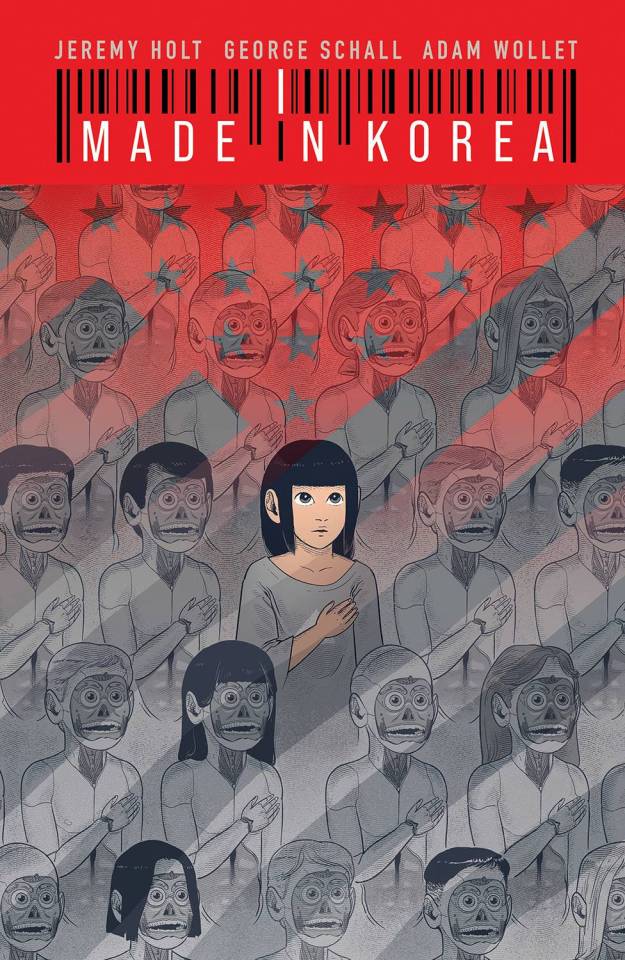
Black Firsts: Dr. Carla D. Hayden, U.S. Librarian of Congress (LISTEN)
Black Firsts: Dr. Carla D. Hayden, U.S. Librarian of Congress (LISTEN)
by Lori Lakin Hutcherson (@lakinhutcherson)
Today, GBN celebrates Dr. Carla D. Hayden who in 2016 became the first woman and first African American person to serve the nation as Librarian of Congress.
To read about Dr. Hayden, read on. To hear about her, press PLAY:
https://goodblacknews.org/wp-content/uploads/2022/04/042122GBNPADpodv2.mp3
[You can subscribe to the Good Black News Daily Drop…

ALA has not issued a press release about this (yet?), but it appears briefly in theAmerican Libraries coverage of the Council meeting.
CD #50, “Resolution on Renaming the Melvil Dewey Medal,” which came out of work done by the Feminist Task Force, has passed.
“A ‘Private’ Grievance against Dewey,” found in American Libraries over twenty years ago (Jan 1996, Vol. 27 Issue 1, p62-64), by WoLH profile subject Clare Beck, is among the sources listed.
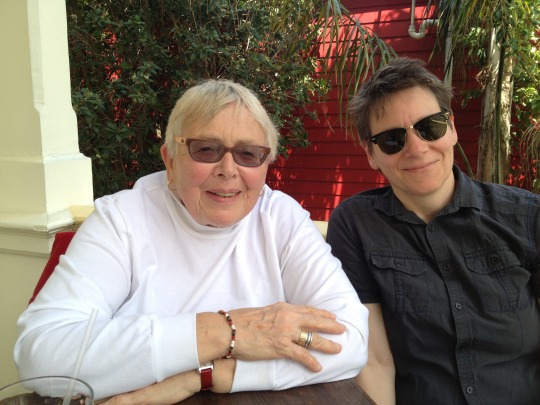
This post was written by Polly Thistlethwaite, Chief Librarian, The Graduate Center, City University of New York. The photo above, taken by Liz Snyder in 2013, shows BC Sellen and Polly Thistlethwaite in New Orleans.
Betty-Carol “BC” Sellen was born 1934 in Seattle, WA. She is a librarian and a collector of American folk and outsider art and author of several resource books on the subject. She attended the University of Washington for both her Bachelor’s (1956) and Master’s (1959) degrees, and she earned a second Master’s from New York University in 1974. She held positions of increasing responsibility in the profession, starting at the Brooklyn Public Library (1959-60), then with the University of Washington Law Library (1960-63), and finally at the City University of New York Brooklyn College Library from 1964 until her retirement in 1990 as Associate Librarian for Public Services. She resides in Santa Fe, NM, and also spends time in New Orleans, LA.
As a library school student at the University of Washington, Sellen engaged with student government to pressure the university to concern itself with housing for students of color, with particular focus on students from Africa who struggled to find places to live. A media campaign called attention to discriminatory city housing practices and forced the university to support students impacted by them.
Sellen’s librarianship provided a platform for wide-ranging activism, gaining particular notoriety for her work on feminist issues in the profession. Sellen was active in the founding of the ALA Social Responsibilities Round Table, a co-founder and 1982-3 chair of the ALA Feminist Task Force, and chair of the Committee on the Status of Women in Librarianship following that.
With a cohort of librarian feminists, she organized an American Library Association Preconference on the Status of Women in Librarianship sponsored by the Social Responsibilities Round Table Task Force on the Status of Women in 1974 at Douglass College, Rutgers University. In the Introduction to the proceedings from that Preconference [1], Sellen describes initial meetings of the group with the incisive directness characteristic of her commentary:
Most of this first meeting was consumed by men telling the women how to improve themselves, and furthermore that what the profession really needed was more men to improve the image. In spite of these helpful suggestions and the scornful attitude of many male SRRT members, who fancied themselves a part of the macho left, where women’s issues were considered frivolous, the women were able to organize together and to become an active and notable presence at ALA conference meetings.
Sellen further explains her cohort’s librarian-focused strategies to “utilize talents and abilities already present among women librarians and not call up experts or ‘big names’ outside the profession” to build professional self-reliance in a likely long-term struggle against systemic oppression.
The preconference generated tangible results: a national survey about union types and priorities; a feminist librarian directory and support network S.H.A.R.E. (Sisters Have Resources Everywhere); a library education resolution presented to ALA membership directing the Committee on Accreditation to practice nondiscrimination in hiring and promotion of library school members; a statement to ALA regarding the Ford Foundation-funded Council on Library Resources to examine grant awarding and promotion practices; a variety of watchdog efforts directed at library schools, the library press, and professional journals; and the recommendation that a daily ‘sexist pig’ award be reported in the ALA Conference Cognotes publication with accompanying instruction about how to make nominations for it. The conference also generated resolutions presented to the ALA for deliberation during the 1974 Annual Conference Meeting in New York City involving accreditation, child care services, position evaluation, sexist terminology, support for affirmative action, terms of administrative appointment, and women in ALA Council positions.
Sellen was also active in New York City library politics. She was President of the Library Association of the City University of New York (LACUNY) [2] during the tumultuous years of 1969 – 71 and co-chair of the 1968 LACUNY Conference [3] New Directions for the City University Libraries that laid the groundwork for the CUNY union catalog and growth of the productive coalition of CUNY libraries. Sellen’s engagement with library politics around the country introduced varieties of library organization, policies, and political concerns into CUNY library activism.
Sellen was engaged in efforts to obtain and to maintain faculty status for CUNY librarians, to match the salaries, benefits, and prestige afforded other university faculty colleagues, achieved in 1965 [4]. In her role as president of the LACUNY Sellen encouraged librarians to publish in scholarly and literary journals as appropriate platforms for librarians’ work. She wrote Librarian/author: A Practical Guide on How to Get Published (Neal-Schuman, 1985) to further that concern.
Sellen was also a defender of academic freedom. When Zoia Horn, librarian at Bucknell College in Lewisburg, PA, was jailed for refusing to turn over library borrowing records regarding the Berrigan brothers (who were imprisoned for anti-American activities) [5], Sellen organized NYC fundraising to support Ms. Horn’s legal defense. [More from WoLH on Zoia Horn here–ed.]
Sellen valued collaboration and often co-authored her academic and professional work on library salaries, alternative careers, and feminist library matters. She was a prodigious author of letters-to-the-editor of library professional publications. She wrote brief, widely-read letters for American Librarians and Library Journal on topics such as librarian faculty status, the sexist underpinnings of the librarian image problem, intellectual freedom in Cuba, sexism and salary discrimination in the library profession, suppression of gay literary identities, and on unacknowledged incidents of censorship. In 1989 she criticized appointment of Fr. Timothy Healey to head the New York Public Library on the grounds that as a CUNY administrator, prior to his NYPL appointment, Healey had systematically undermined librarians and libraries. Sellen remembered publicly that Healey, in a CUNY meeting she attended, announced that “college librarians were about as deserving of faculty status as were campus elevator operators” [6], exposing a cluster of problematic biases held by a man appointed a leading NYC cultural administrator.
In the 1970s, Sellen convinced several other librarians, including Susan Vaughn, Betty Seifert, Joan Marshall, Kay Castle, to take up residence on E. 7th Street in New York City’s East Village. She resided at 248-252 East 7th St. Sellen joined with a multi-ethnic group of residents to rehab neighborhood buildings and establish them as self-governed cooperatives. Sellen was active in the same block association that battled the drug trade that flourished in the neighborhood as early as the 1970s and continued into the 1990s [7].
In 1990 Sellen received the ALA Equality Award, commending her “outstanding contributions toward promoting equality between men and women in the library profession.” The commendation recognizes her tireless labor and sustained coalition building as a leader in several landmark conferences on sex and racial equality, and her “inspiration to several generations of activist librarians.”
Sellen’s eclectic expertise was reflected in her published works. She assembled and edited The Librarian’s Cookbook (1990). She co-authored The Bottom Line Reader: A Financial Handbook for Librarians(1990);The Collection Building Reader (1992) and What Else You Can Do with a Library Degree(1997).
In her retirement, Sellen became an accomplished collector of American folk art. She authored and co-authored several reference books on the topic, including 20th Century American Folk, Self-Taught, and Outsider Art (1993) and Outsider, Self-taught, and Folk Art: Annotated Bibliography (2002) with Cynthia Johanson; Art Centers: American Studios and Galleries for Artists with Developmental or Mental Disabilities (2008); and Self-taught, Outsider and Folk Art: A Guide to American Artists, Locations, and Resources(2016).
Footnotes
1. Marshall, Joan; Sellen, Betty-Carol (1975). Women in a women’s profession: strategies: proceedings of the pre-conference on the status of women in librarianship. American Library Association.
2. Schuman, Patricia; Sellen, Betty-Carol (1970). Libraries for the 70s. Queens College, City University of New York.
3. Sellen, Betty-Carol; Karkhanis, Sharad (1968). New Directions for the City University of New York: Papers Presented at an Institute. Kingsborough Community College of the City University of New York.
4. Drobnicki, John A. (2014). CUNY Librarians and Faculty Status: Past, Present, and Future. Urban Library Journal 20(1).
5. Horn, Zoia. (1995). Zoia! Memoirs of Zoia Horn, Battler for People’s Right to Know. Jefferson, NC: McFarland.
6. Sellen, Betty-Carol. (June, 1989). Healy: Unequivocal Dismay. Library Journal, p. 6.
7. Pais, Josh et al. 7th Street. (2005). Video. Paradise Acres Productions.

Bridget Quinn-Carey, CEO of Hartford Public Library, submitted today’s post.
The image above is part of the University of Wisconsin-Madison School of Library and Information Studies Collection.
In 1882, Caroline M. Hewins had been a librarian in Hartford for only six years when, through a fledgling group called the American Library Association, she sent a questionnaire to twenty-five libraries around the country and asked: “What are you doing to encourage a love of reading in boys and girls?” (Hog River Journal, Vol 5, No. 3, Summer 2007, “Hartford’s First Lady of the Library,” page 28.) A devoted reader since early childhood, Bostonian Hewins came to Hartford in 1876 to serve as the librarian of the Young Men’s Institute Library, then housed at the Wadsworth Atheneum and a precursor to what became the Hartford Public Library. She stayed with the library for the next fifty years, and oversaw its transformation from a small lending library that charged fees into the free Hartford Public Library, complete with its own flagship facility including a room for children.
She came from a wealthy and cultured home where books had been her magic carpet, and she wanted them to be available to children at every economic level. The Institute Library had not welcomed children, but Hewins quickly changed that, and gathered together books by Grimm, Andersen, Hawthorne, Thackeray and Dickens to furnish a corner for children. She used the power of the local press and professional library periodicals to encourage parents to bring their children to libraries, to read with them, and to choose quality books that would inspire the young imagination. The same year that she sent out the questionnaire, she published a nationally available bibliography of children’s books she loved and thought valuable. During the time when a paid subscription to the library was $3 a year to borrow one book at a time, Hewins worked with local Hartford schools to encourage subscription cards for the children, at pennies per card.
By the time the library became a free service in 1892, Hewins had already lowered the annual subscription fee to $1 and doubled the membership. Opinionated, iconoclastic and not a follower of rules others had established, she believed that children deserved better books than the formulaic and often violent Horatio Alger stories and weekly novels of the penny press. The Children’s Room she established had furniture suitable for different ages of children, pictures of flowers, lots of light and a resident dog the children had helped name. When she was not working at the library or writing for a national audience about the need for books and library settings appropriate to children, Hewins traveled. On her many trips, she wrote letters home to the children of Hartford, which the local newspapers published, and she shopped for books and dolls which she brought back to the library and shared with the children.
She collected books to be used in city classrooms, and made the library a place for book groups, theatrical skits, exhibits for parents and parties. By building connections between local school schools and the library, and between the library and the urban poor, as well as encouraging children reading for pleasure, Caroline Hewins anticipated by more than a century the common practices of today. She promoted library branches and believed that if the poor could not come to the books, the books should come to them.
Hartford Public Library’s Hartford History Center is home to her collection of more than 150 dolls, originals of some of the letters she wrote to Hartford children from Europe, correspondence and newspaper clippings, and the large collection of European and American nineteenth- and twentieth-century children’s books she acquired for the library. Scholar Leonard S. Marcus guest curated a popular Hartford History Center exhibition (December 2009 to April 2010) of fifty of Miss Hewins’s books, and is one of the nation’s leading authorities on children’s literature wrote in the accompanying catalog, “The fine collection…sampled throughout this exhibition bears witness to the adventurous spirit that powered her innovative life’s work.” (footnote page 1, catalog of exhibit.)

Today’s post was written by Lorna Peterson, who is also the source of our posts on Betty Jenkins(2017),Clare Beck(2017),Aurelia Elizabeth Whittington Franklin(2016),Leaonead Pack Drain-Bailey (2015), and Clara Stanton Jones (2014). The image above is from “Small in Stature, Great in Spirit: A Tribute to Frances Yocom” by Betty Bolton, which appeared in North Carolina Libraries Volume 22, Number 3 in 1964.
Born in Pennsville, Morgan County, Ohio, on May 13, 1899, librarian Frances Lydia Yocom’s contributions to librarianship are many, but most notably are marked by her thoughtful, groundbreaking works on subject retrieval of research about and by African Americans, her book reviews of works concerning African Americans, and her bibliographies, which preserve for us titles that without her documentation would likely remain lost to future readers.
Her published works provide a bibliographic foundation for understanding the complexity of subject information retrieval, controlled vocabulary, and implicit bias. Notably, her Berkeley MA thesis published as A list of subject headings for books by and about the Negro, by the H.W. Wilson Publishing Company in 1940 and cited in Arna Bontemps 1944 Library Quarterly article “Special Collections of Negroana is one such seminal work. Her 1942 review of The Negro Federal Government Worker by Lawrence J. W. Hayes in the Southern Economic Journal minces no words on discrimination and shortcomings of the Civil Service merit system as researched and described by the author Lawrence Hayes. In the same issue of the Southern Economic Journal Ms. Yocom reviews with great care and praise, Eliza Gleason’s The Southern Negro and the Public Library[1]which in turn has been cited by library historian Cheryl Knott.[2] These titles are just a few of the works published by a scholar who is in need of remembering and deserving of a deep, and rich, biography.
Who was this white woman who worked at historically black colleges and universities as well as predominately white institutions, and was a librarian who used her bibliographic skills in the crusade for racial justice? Who and what shaped her mission to live in a world of racial equality?
The Yocom family moved to Oberlin in 1907, where the father, Eli King Yocom owned a dry goods store with his brother Joseph. Frances attended Oberlin public schools; she graduated from Oberlin High School in 1917, and graduated from Oberlin College in 1921 with a major in English. Her obituary lists her having earned the Master of Arts degree from Columbia University Teachers College in 1925. Oberlin alumni magazines from 1927 and 1929 report on Ms. Yocom working at Straight College (a predecessor of Dillard University) as a librarian and also as an English teacher. Frances Yocom’s interest in librarianship was greater than in teaching, as evidenced by her move back to Ohio to work in a library. She is listed in the 1930 Census as living with her mother and working as a librarian at Oberlin College.[3] She also lived in Cleveland where she earned the B.S. in library science from Western Reserve University (now Case Western Reserve University) in 1931.
From Fisk University, Nashville Tennessee records, she is additionally listed in the teacher records/teacher reports for 1931-32, 1935-37. It is here that her friendship developed with Fisk University history professor Theodore S. Currier, who was such an important part of the enriched undergraduate education experienced by future librarian Aurelia Whittington, and her future historian husband John Hope Franklin, that Frances Yocom was mentor to Aurelia Whittington.[4] (Note: Lorna Peterson wrote about Aurelia Whittington Franklin for Women of Library History in 2017. –Ed.)
In 1939, Yocom earned the M.S. in librarianship from the University of California, Berkeley. Her MA thesis was “List of Subject Headings for Books by and about the Negro,” 1939, M.A. (California) as cited in “Graduate Theses Accepted by Library Schools in the United States from July, 1938, to June, 1945” by Dorothy Ethlyn Cole, Library Quarterly, Vol. 17, No. 1 (Jan., 1947), page 56.
The January 1946 issue of CRL News, lists Ms. Yocom as a Fisk University associate librarian and cataloger “for a number of years” who has taken a position at Humboldt State College, Arcata CA.[5] From Humboldt State College which is now Humboldt State University, Frances Yocom took a cataloging position at the University of North Carolina, Chapel Hill where she retired from in 1964. Her career at Chapel Hill was memorialized by Betty Bolton “Small in Stature, great in spirit: A Tribute to Frances Yocom ” North Carolina Libraries, Volumes 22, no.3, Spring 1964, pages 87-89.
After retirement, Frances Yocom returned to Oberlin, Ohio and later, moved into Copeland Oaks Retirement Community, Sebring, Ohio. From her obituary, it is stated she kept up an active correspondence with friends and former colleagues. One can only hope that the letters, diaries, and photos of this remarkable librarian have been preserved. This was a life rich in work, education, travel, living in various sections of the United States, and quiet social activism. She was involved in the American Library Association and attended its meetings. She presented at the Southeastern Library Association once it integrated. She is acknowledged in the works of some the nations foremost civil rights activists and historians—for example, Harry Emerson Fosdick[6] and John Hope Franklin. She was a librarian dedicated to civil rights and social justice, using the expertise of librarianship to make positive social change. Her story needs to be told.
Notes
[1] Yocom, Frances L. (1942) Review of The Southern Negro and the Public Library. Southern Economic Journal, 8 (April): 521–2.
[2] Knott, Cheryl The Publication and Reception of The Southern Negro and the Public Library, Race, Ethnicity and Publishing in America pp 51-76, Springer 2014.
[3]1930 United States Federal Census [database on-line]. Provo, UT, USA: Ancestry.com Operations Inc, 2002; Original data: United States of America, Bureau of the Census. Fifteenth Census of the United States, 1930. Washington, D.C.: National Archives and Records Administration, 1930. T626, 2,667 rolls.
[4] Franklin, John Hope, Mirror to America, 2005, page 47.
[5] “New from the Field” College and Research Libraries, January 1946, vol 7, no 1, page 83.
[6] Miller, Robert Moats, Harry Emerson Fosdick: Preacher, Pastor, Prophet, Oxford University Press, 1985, page 572.

Today’s post is from Ashley C. Huser, Digital Resources Librarian at the Evans Library, Florida institute of Technology. The photographs of Barbara Gittings are from LGBT History Month, where additional resources about Gittings are available.
Born on July 31st 1932, Barbara Gittings “is widely regarded as the mother of the LGBT civil rights movement” (LGBT History Month, 2006, para. 1). Her involvement in the movement began in 1956, long before the infamous Stonewall Riots of 1969 (Stein, 2009). Her prolific pioneering activism spanned far and wide, including within the world of libraries.
Gittings’ immersion into library service happened organically. While attempting to accept and learn about her own homosexuality, she scoured libraries and bookstores on a quest for literature on the topic, but remained largely empty-handed and unsatisfied (Kniffel, 1999). Therefore, when she got wind that a collection of gay librarians had formed a group within the American Library Association (ALA), she decided to join their mission, hoping to help increase the availability and discoverability of gay literature (Kniffel, 1999). In 1970 she created “a list of 37 gay-positive books, magazine articles, and pamphlets – the first version of a resource that would be known as ‘A Gay Bibliography’” (ALA, 2017, para. 3). In 1972 she officially joined the ALA and became the Task Force Coordinator of what was then known as ALA’s Task Force on Gay Liberation (ALA, 2017). This task force was the first professional organization of its kind. Today, this trailblazing group is known as the Gay, Lesbian, Bisexual, and Transgender Round Table (GLBTRT).
Although not formally trained as a librarian, Gittings was welcomed by the ALA with open arms (Kniffel, 1999). She went on to become an essential activist within the library community, serving as the Task Force Coordinator for fifteen years (Independence Branch Library, 2012). In an interview with Kniffel in 1999 she reflected that,
What has changed, in the nearly 30 years since the task force started, is simply that librarians have not only become accustomed to gay literature – which is now, happily, a flood of gay literature – but they have embraced it and taken it up. You don’t have to have quite the nudging and pressure that we had to use in the early years to get librarians to pay attention at all to the emerging gay literature. (p.75)
Gittings died at the age of 74 on February 18th, 2007 (Fox, 2007). However, her legacy and accomplishments live on in infinite respects within the library world and the LGBT community as a whole. Several library related tributes have been created to memorialize her legacy including: the Barbara Gittings Gay & Lesbian Collection of the Free Library of Philadelphia, the Barbara Gittings and Kay Tobin Lahusen Gay History Papers and Photographs collection of The New York Public Library, and the GLBTRT’s Barbara Gittings Literature Award.
References
American Library Association. (2017). GLBTRT history timeline. Retrieved from http://www.ala.org/rt/glbtrt/about/history
Fox, M. (2007, March 15). Barbara Gittings, 74, prominent gay rights activist since ’50s, dies. The New York Times. Retrieved from http://www.nytimes.com/2007/03/15/obituaries/15gittings.html
Independence Branch Library. (2012). The Barbara Gittings Gay & Lesbian Collection celebrates GLBT History Month. Retrieved from https://libwww.freelibrary.org/blog/post/1612
Kniffel, L. (1999). Gay liberation: From task force to round table. American Libraries, 30(11), 74-76. Retrieved from https://search-proquest-com.portal.lib.fit.edu/docview/197166632?accountid=27313
LGBT History Month. (2006). Barbara Gittings - gay pioneer. Retrieved from https://lgbthistorymonth.com/barbara-gittings?tab=biography
Stein, M. (2009). Barbara Gittings, February 2, 1993 [Interview transcript]. Retrieved from http://outhistory.org/exhibits/show/philadelphia-lgbt-interviews/interviews/barbara-gittings
From the Desk of Gratia Countryman
Here is the first in an ongoing series from the desk of Gratia Countryman. Gratia Countryman was very important to the history of Hennepin County Library. She was the director of Minneapolis Public Library for over 30 years and she founded Hennepin County Library.
This is from Ms. Countryman’s annual report from the first year of her administration, 1904:
What is a library for?
A public library is the one great civic institution supported by the people which is designed for the instruction and pleasure of all people, young and old, without age limit, rich and poor, without class limit, educated and uneducated, without culture limit. Its function being to instruct and benefit, how are we going to accomplish this end? In the opinion of your librarian there is positively no limit to the things which a public library can legitimately do in carrying out its purpose, except the limitations of financial resources. It should be “all things to all men” in the world of thought, by keeping in close touch, not only with the leaders of thought, but with the rank and file of the people. This will mean many forms of activity which in the past were not connected with the idea of a library. Perhaps still in the minds of many a library is only a place where books are stored, or distributed under many objectionable restrictions. But in the larger sense, the library should be a wide-awake institution for the dissemination of ideas, where books are easily accessible and readily obtainable. It should be the center of all the activities of a city that lead to social growth, municipal reform, civic pride and good citizenship. It should have its finger on the pulse of the people, ready to second and forward any good movement. It should be the home of clubs and societies and free lecture courses. …gracious and sympathetic hospitality should be the prevailng spirit of the place, and every member of a well disciplined staff will need, not only a broad education, but the most genuine willingness to serve.
How to reach the busy men and women…how to enlist the interest of tired factory girls, how to put the workingman in touch with the art books relating to his craft and so increase the value of his labor and the dignity of his day’s work - these are some of the things which I concieve my duty to study, if I would help this public library to become what it is for.
Gratia Countryman, Librarian
Kellian Clink (Minnesota State University, Mankato) and Kaia Sievert (University of Minnesota) both got in touch this year to sing the praises of legendary Minnesota librarian Gratia Countryman. Bailey Diers (Hennepin County Library) helped point out HCL’s wealth of online resources about Countryman, including a whole series of Tumblr postsanda significant collection of digitized photos.
Her life and career are pretty amazing (quoted from this post):
Read the whole post for more about her career, the son she adopted, and the homes she built and lived in with her colleagues (one of whom, Marie Todd, was her life partner and a co-parent to her son).Gratia Alta Countryman was born November 29, 1866, in Hastings, Minnesota, the daughter of pioneer parents Levi and Alta Chamberlain Countryman. […] In 1904 she succeeded Hosmer as chief librarian, becoming the nation’s first female head librarian. Countryman was chief librarian for over thirty-two years until 1936 when she was required to retire at the age of seventy. She was then made librarian emeritus.
Upon Countryman’s promotion to chief librarian she immediately began to make changes, expanding the Library’s services to reach more and more people. In the thirty-two years she directed the Library, service expanded into all areas of the city including elementary and junior high schools, hospitals, engine houses, welfare centers, and factories. By the time of Countryman’s retirement, the book collection had increased to 662,842 volumes and the circulation, which was 519,000 in 1904, had increased to 3,293,484 in 1936. The number of registered borrowers had increased from 40,500 in 1904 to 181,582 in 1936. Of the 11 branch library buildings in Minneapolis, 9 were built during her administration. Countryman was instrumental in local, state, and national library work, and was elected President of the American Library Association from 1933-34 becoming the sixth woman to hold that distinction in the association’s hitherto sixty year history.
Post link


All in favor of replacing Dewey with this say ‘Aye!’

